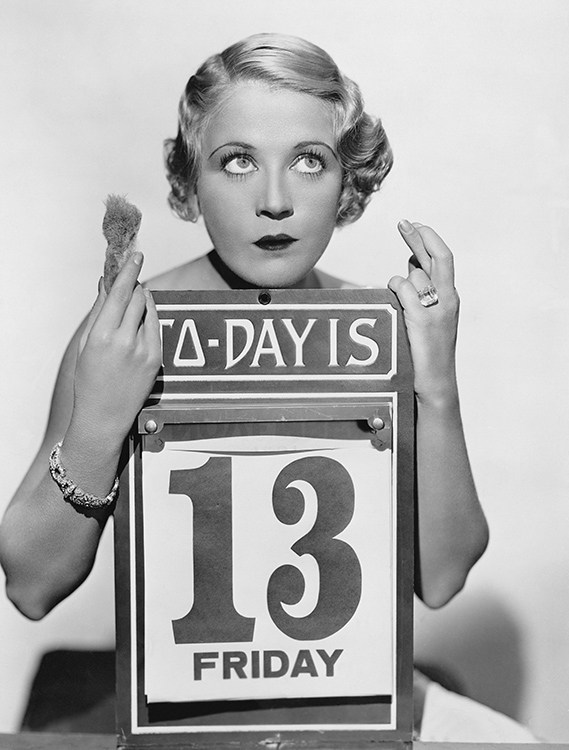It’s Friday the 13th—Stay Calm and Carry On
November 13, 2015
For the third time in the year 2015, a Friday will fall on the 13th day of the month, and you will not be alone if you feel just a little bit nervous about this unluckiest of days. Friggatriskaidekaphobia (fear of Friday the 13th) is a common phobia shared by millions of people worldwide. The word comes from Frigg, the name of the Norse goddess for whom Friday is named, and triskaidekaphobia, or fear of the number thirteen. Friday the 13th always occurs at least once a year and no more than three times in any one year.

Friday and the number 13 are both associated with bad luck in Western cultures. Credit: © Everett Collection/Shutterstock
Scholars of folklore are uncertain about the exact origins of the superstitions surrounding Friday the 13th. Historical documents that refer to the unlucky day are all but unknown before the late 1800′s, but scholars know that superstitions surrounding Friday and the number 13 stretch back to ancient times. For example, one of the earliest written collections of laws, the Code of Hammurabi, composed between 1792 and 1750 B.C., completely omits the number 13. Some people think 13 owes its bad reputation to Loki, the ancient Norse god of evil, who arrived uninvited to disrupt a feast held by 12 Norse gods at Valhalla. The number 13 continues to have an unlucky association today. Thirteen is so disliked that many cities skip over 13th Street, hotels often avoid having a 13th floor, and many airports do not have a gate 13.
Friday is also often associated with bad luck. Many people will not travel or begin a trip on a Friday. One explanation for the belief that Friday the 13th is especially unlucky stems from Christian tradition. Jesus Christ was crucified on a Friday following the Last Supper, attended by 13 men.
Although scientists normally dismiss superstition, some take worries over Friday the 13th seriously. Psychologists have studied how concern over the unlucky date may affect people’s health and safety. Remarkably, some research studies find that accidents are actually less common on Friday the 13th compared to other dates. Researchers suggest that people are more likely to stay at home or people are more cautious because of fears surrounding the date.
Other World Book article


